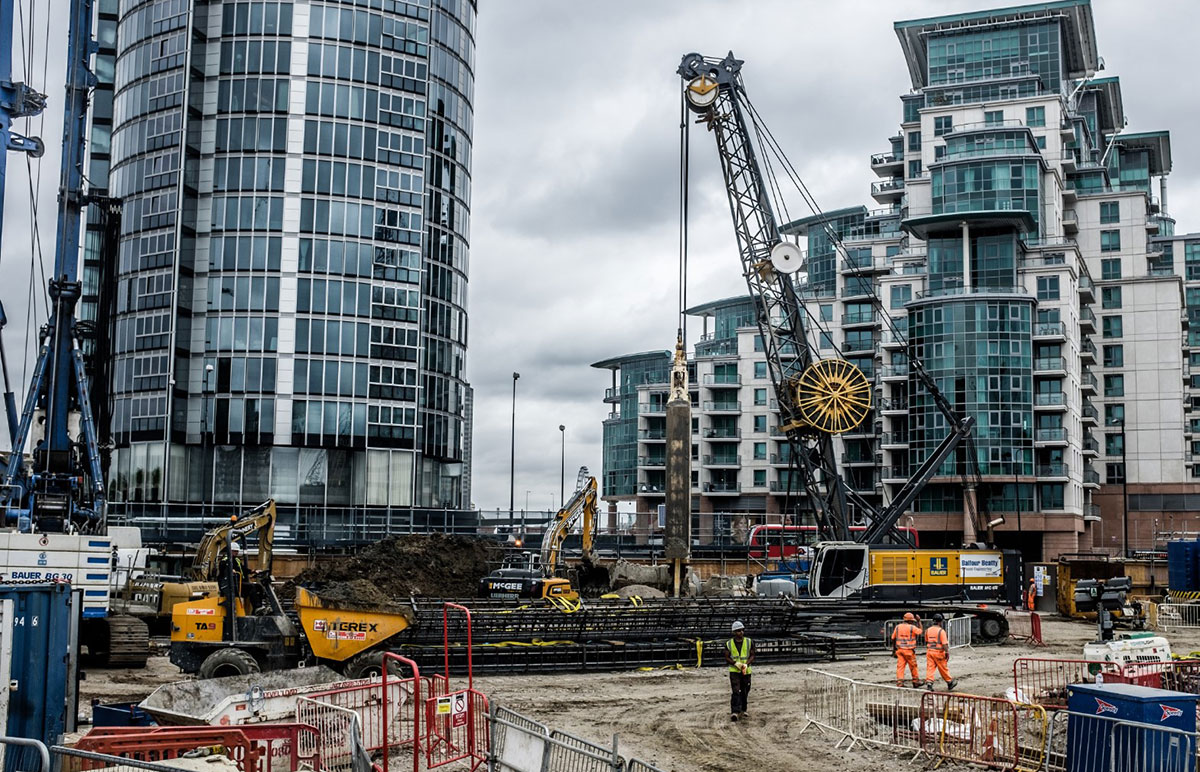Indicators on Geotheta You Should Know
Table of ContentsThe Main Principles Of Geotheta The Geotheta DiariesThe Facts About Geotheta Revealed10 Simple Techniques For GeothetaFacts About Geotheta Uncovered

They conduct site examinations, collect samples, carry out laboratory examinations, and examine information to assess the suitability of the ground for building and construction tasks - Engineer of Record. Based on their searchings for, geotechnical designers provide recommendations for structure style, slope stability, keeping frameworks, and mitigation of geotechnical threats. They team up with other experts, such as designers, structural designers, and building groups, to make certain that geotechnical factors to consider are integrated right into the total job layout and implementation
By evaluating the habits and homes of soil and rock, they can identify possible geotechnical risks such as landslides, dirt settlement, or incline instability. Their expertise helps stop failings or crashes that might threaten lives and residential or commercial property. Right here are some comprehensive responsibilities and obligations of a geotechnical designer: Website Examination: Geotechnical engineers conduct site investigations to gather information on subsurface problems.
They interpret the data to understand the homes and behavior of the dirt and rock, including their strength, leaks in the structure, compaction attributes, and groundwater problems. Geotechnical Analysis and Style: Geotechnical engineers assess the data collected throughout website examinations to analyze the security and viability of the site for construction projects. They perform geotechnical computations and modeling to evaluate factors such as bearing capacity, negotiation, slope stability, lateral planet stress, and groundwater circulation.
Geotheta Can Be Fun For Anyone
Foundation Design: Geotechnical engineers play an important function in making structures that can securely support the desired framework. They evaluate the soil problems and tons requirements to figure out the appropriate structure kind, such as superficial structures (e.g., grounds), deep foundations (e.g (https://geotheta.wordpress.com/2024/08/02/unlocking-the-secrets-of-geotechnical-engineers-the-geotheta-advantage/)., stacks), or specialized strategies like dirt enhancement. They think about elements such as settlement limits, birthing capability, and soil-structure communication to develop optimum structure layouts
They examine construction plans, display site activities, and carry out area assessments to validate that the design referrals are followed. If unanticipated geotechnical issues arise, they analyze the situation and offer suggestions for removal or changes to the style. Risk Analysis and Mitigation: Geotechnical engineers evaluate geotechnical hazards and dangers connected with the project site, such as landslides, liquefaction, or soil disintegration.

Collaboration and Interaction: Geotechnical engineers function closely with various other experts involved in a task, such as designers, structural designers, and building teams. Reliable communication and cooperation are necessary to integrate geotechnical factors to consider right into the overall task style and construction process. Geotechnical designers supply technical expertise, response questions, and make sure that geotechnical requirements are satisfied.
What Does Geotheta Mean?
Right here are some sorts of geotechnical designers: Foundation Engineer: Structure designers concentrate on developing and examining structures for frameworks. They evaluate the soil conditions, tons demands, and website qualities to figure out one of the her response most ideal structure type and design, such as shallow foundations, deep foundations, or specialized techniques like stack structures.
They evaluate the aspects affecting incline security, such as dirt residential properties, groundwater problems, and incline geometry, and establish approaches to avoid slope failures and mitigate threats. Earthquake Engineer: Earthquake engineers specialize in analyzing and designing structures to withstand seismic forces. They assess the seismic hazard of a website, review dirt liquefaction possibility, and establish seismic style requirements to guarantee the security and resilience of structures throughout quakes.
They do field testing, accumulate examples, and examine the collected information to characterize the soil buildings, geologic developments, and groundwater conditions at a site. Geotechnical Instrumentation Designer: Geotechnical instrumentation engineers concentrate on surveillance and measuring the behavior of soil, rock, and structures. They set up and preserve instrumentation systems that keep track of elements such as soil settlement, groundwater degrees, slope movements, and architectural variations to evaluate efficiency and provide early warnings of possible issues.
The smart Trick of Geotheta That Nobody is Discussing
They perform examinations such as triaxial tests, debt consolidation tests, straight shear examinations, and permeability tests to collect data for geotechnical analysis and style. Geosynthetics Designer: Geosynthetics engineers focus on the design and application of geosynthetic products, such as geotextiles, geogrids, and geomembranes. They use these materials to improve dirt security, enhance inclines, provide drainage remedies, and control erosion.
They tend to be investigatory people, which means they're intellectual, introspective, and investigative. They are curious, methodical, sensible, analytical, and sensible. Some of them are also social, indicating they're kind, charitable, participating, patient, caring, useful, compassionate, sensible, and pleasant. Does this audio like you? Take our free job examination to learn if geotechnical designer is one of your top occupation matches.
In the workplace atmosphere, geotechnical designers make use of specialized software program devices to do estimations, produce styles, and analyze data. They prepare records, review task specs, connect with clients and team participants, and coordinate job activities. The office setting supplies a helpful setting for study, evaluation, and cooperation with various other experts included in the job.
The Definitive Guide to Geotheta
They regularly see project sites to perform site investigations, analyze geotechnical problems, and gather data for evaluation. These gos to include traveling to various areas, sometimes in remote or tough terrains. Geotechnical designers may do dirt sampling, conduct examinations, and display building tasks to ensure that the geotechnical elements of the task are being executed appropriately.
Geotechnical engineers likewise work in specialized geotechnical labs. Geotechnical research laboratory designers function thoroughly in these settings, taking care of screening devices, running tools, and recording data.